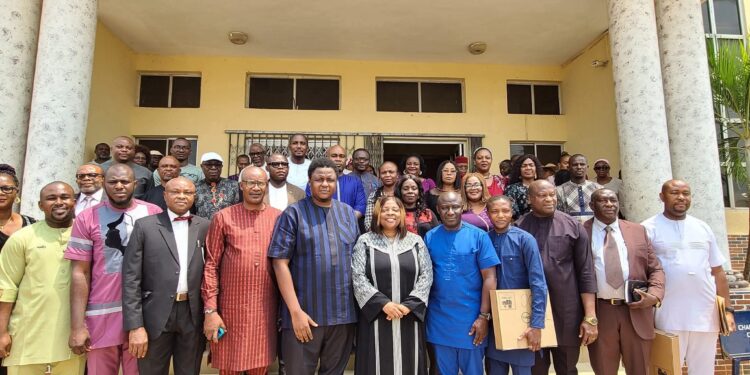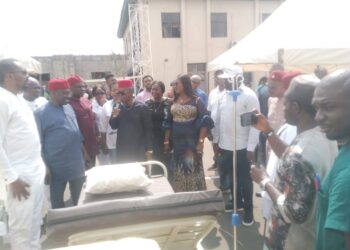The Chukwuemeka Odumegwu Ojukwu University (COOU),has secured its first-ever European Union (EU) research grant, worth €400,000, under the prestigious Erasmus+ Capacity Building in Higher Education programme.
This significant accomplishment is a major milestone for the university, and a direct outcome of the visionary leadership of the Acting Vice-Chancellor, Professor Kate Azuka Omenugha, FNIPR, whose strategic “3Vs Agenda” (Values, Viability, and Visibility) is gradually reshaping the university’s standing on the global academic map.
The awarded project, titled “Enhancing Employability of Accounting Graduates in Uganda and Nigeria by Integrating Employability Skills into Accounting Education using Work-Integrated Learning Approach” (acronym: DESIRED), aims to address one of the most pressing challenges facing higher education in Africa, which is the growing gap between university education and labour market expectations.

The project seeks to empower young accounting graduates in Nigeria and Uganda with practical, in-demand employability skills through a structured Work-Integrated Learning (WIL) model. The grant will fund this ambitious effort over a 24-month period and will involve extensive collaboration between eight prestigious institutions across four countries.
The Nigerian institutions in the project consortium include Chukwuemeka Odumegwu Ojukwu University (COOU) and Nnamdi Azikiwe University, Awka (UNIZIK). Their African counterparts from Uganda are MAT ABACUS Business School and Makerere University Business School (MUBS). Joining them are three prominent European partners: Universidade de Lisboa (Portugal), Stichting VU (Netherlands), and Uganda Chapter for Corporate Social Responsibility (CSR), alongside consulting firm Sejjaaka Kaawaase & Co.. This multi-country collaboration reinforces COOU’s rising international status and strengthens its research and teaching network across borders.
The DESIRED project will benefit over 3,000 students and staff in Nigeria and Uganda, and will focus on critical activities such as curriculum redesign, development of a WIL quality control framework, industry-academia engagement strategies, and capacity building through student and staff mobility programmes.
More importantly, the initiative will institutionalise accounting-industry partnerships and provide participating students with access to hands-on training, internships, and employment pipelines. It also aims to enhance the professional identity of accounting graduates from the onset of their studies and better prepare them for recruitment schemes like “Graduate Into Employment” initiatives.
This achievement is not only a credit to the dynamic leadership of Prof. Omenugha, but also a reflection of the bold vision and continuous support of the Visitor to the University and Governor of Anambra State, Professor Charles Chukwuma Soludo, CFR. His passionate belief in the capacity of COOU and his Solution Agenda have created an enabling environment for innovation, academic excellence, and international recognition. Under his leadership, education in Anambra State has become a priority vehicle for sustainable development, youth empowerment, and global partnerships.
COOU’s journey to securing this EU grant did not happen by chance. In February 2024, the Acting Vice-Chancellor inaugurated a 16-member Research Management Office (RMO) Team with an agenda to lead the University’s research and internationalisation strategy.
On 28 February 2024, COOU hosted a high-level international workshop titled “Deepening COOU’s International Agenda: The Erasmus+ and Other Pathways”, drawing attention to the university’s readiness for global partnerships. This was closely followed by a diplomatic engagement with the Polish Ambassador to Nigeria, Her Excellency Joanna Tarnawska, at the Polish Embassy in Abuja, as well as the EU Embassy also in Abuja, opening further international windows of opportunity for COOU.
On March 8, 2024, COOU successfully registratered on the European Commission Funding and Tenders Portal (ECFTP) which officially qualified the university to enter strategic partnerships and apply for future EU-funded projects, a major move that solidifies its international footing.
This landmark grant represents more than just financial support. It signals the beginning of a new era for COOU. An era in which research, teaching, student development, and international collaboration will thrive.





